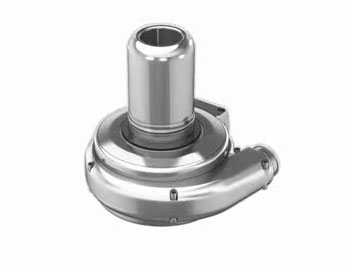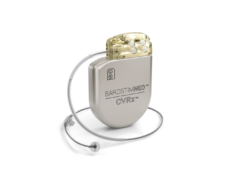
Medtronic’s HVAD system left ventricular assist device (LVAD) has received CE mark for a less-invasive implant procedure in patients with advanced heart failure. The company announced the HVAD system is the first centrifugal LVAD to be approved in the EU for implantation via this new thoracotomy procedure.
Compared to the standard LVAD surgical implant technique, the new approach uses a smaller incision, which potentially lessens surgical bleeding and related blood transfusions and the development of right heart failure resulting in shorter hospital stays. The thoracotomy implantation technique may allow the area around the heart to remain largely intact, potentially preserving the sternum for future procedures or a heart transplant.
The HVAD system features the world’s smallest full-support centrifugal circulatory assist device, the HVAD pump, which is designed to be implanted next to the heart in the pericardial space. Medtronic received the HVAD system in August 2016, when it acquired HeartWare. The system received CE mark in the EU in 2009, and was approved by the US Food and Drug Administration (FDA) in 2012 as a bridge to cardiac transplantation for patients who are at risk of death from refractory end-stage left ventricular heart failure.
“The HVAD system’s small size makes it well-suited for routine thoracotomy implantation,” says Jan Schmitto, director of the Mechanical Circulatory Support Program and cardiothoracic surgeon at Hannover Medical School, Hannover, Germany, which helped pioneer the new procedure. “This less-invasive implant procedure potentially enables faster patient recovery compared to the traditional approach, which may help improve patient outcomes.”
A study of the thoracotomy HVAD procedure is underway in Canada and the USA, where the implant procedure currently is not approved. The LATERAL study is the largest prospective clinical trial of a full-support ventricular assist device (VAD) to evaluate this implant technique. The study includes patients with end-stage heart failure who have not responded to standard medical management and who are eligible for heart transplantation.









